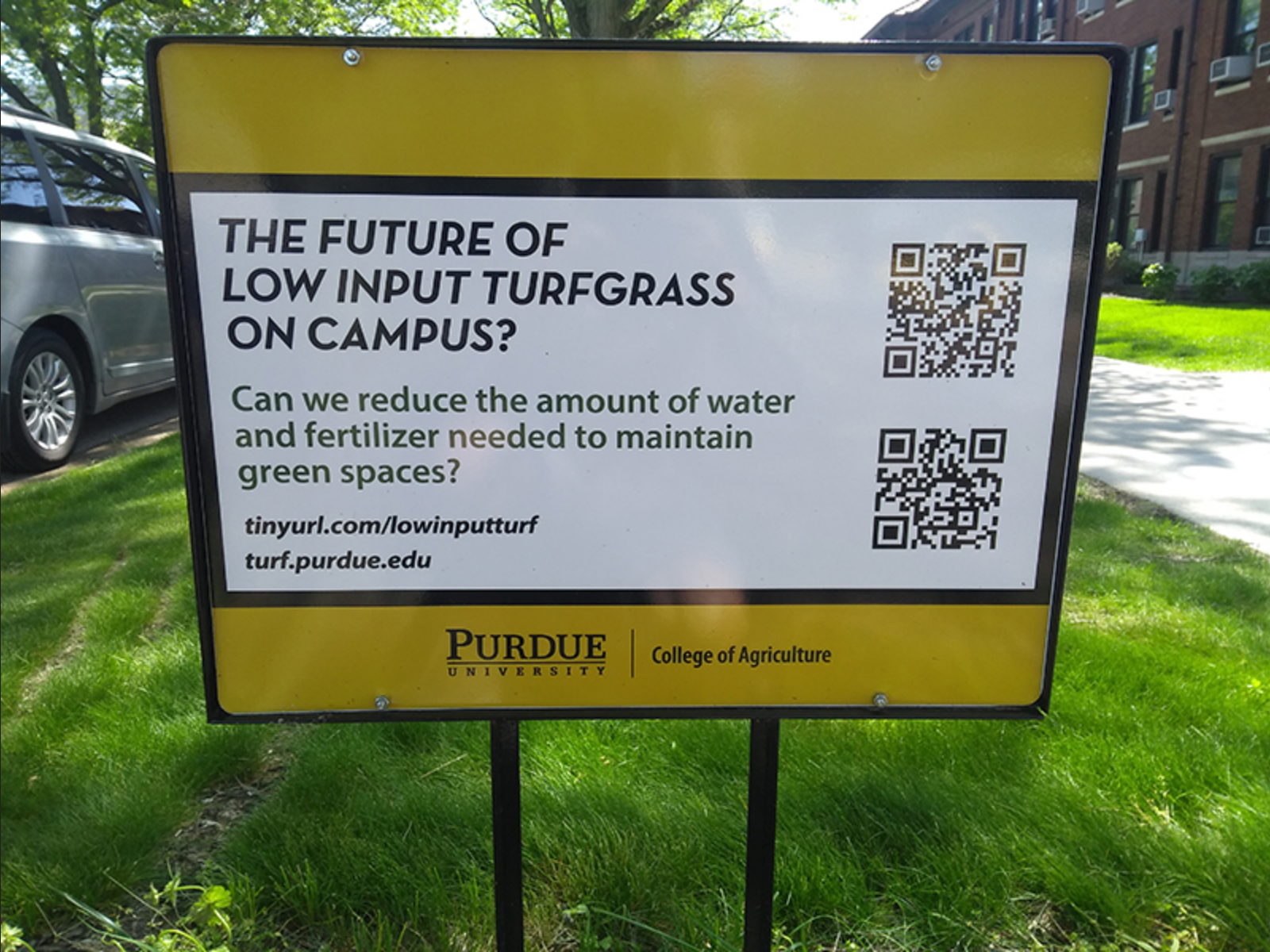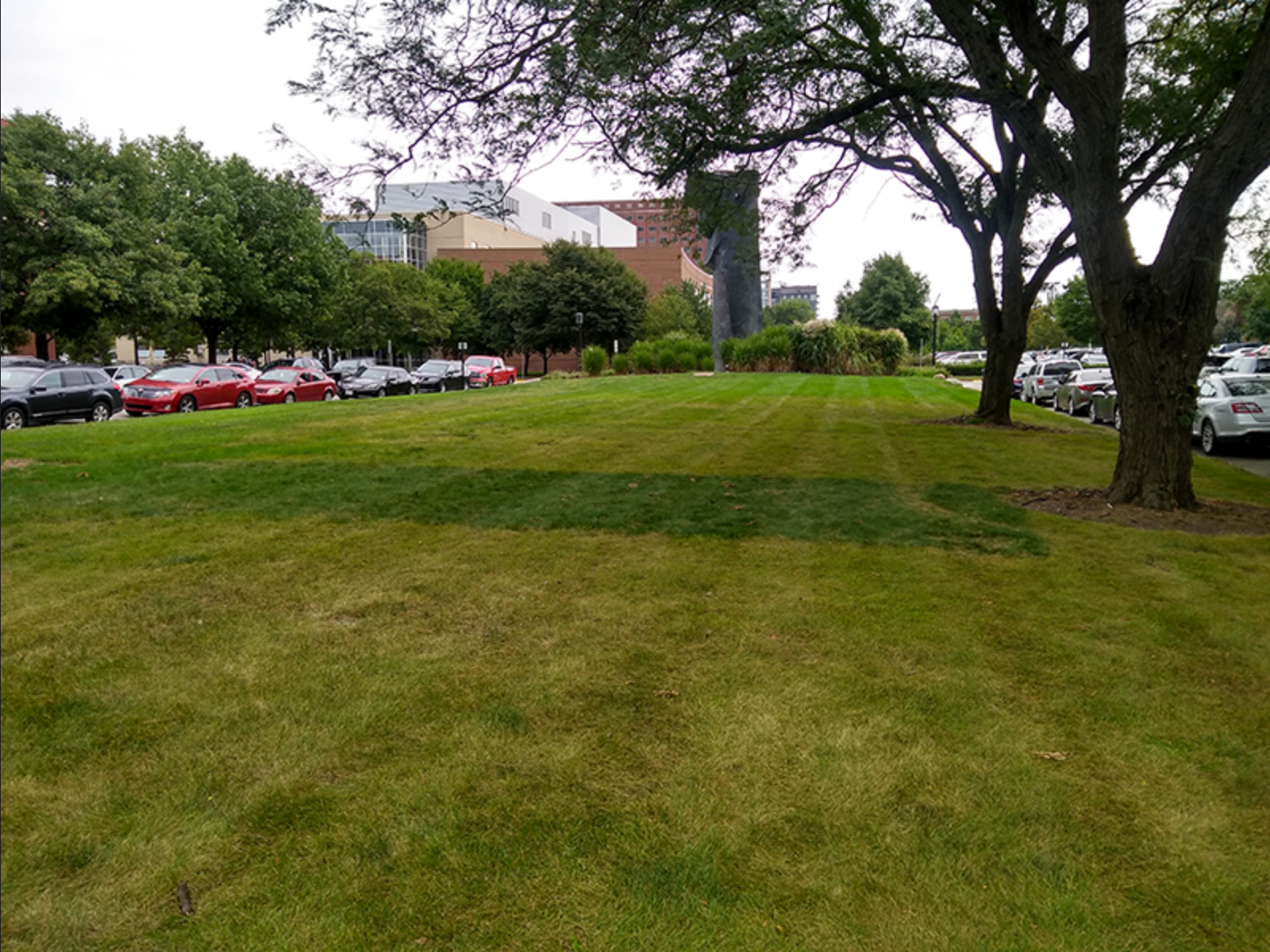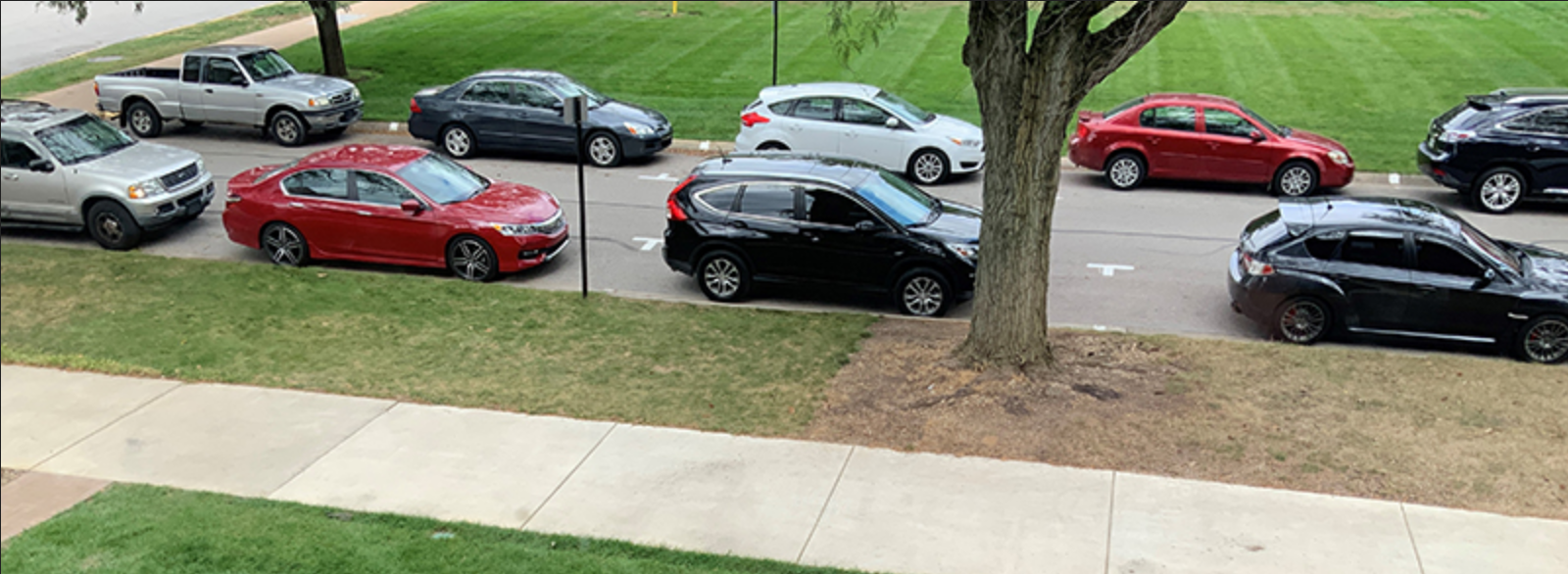picture of the week
October 18, 2021
Fine Fescue: The Future of Low Input Grass?
John Orick, Purdue Extension Master Gardener State Coordinator, Department of Horticulture and Landscape Architecture
Ross Braun, Lead Research Scholar, Purdue Turfgrass Science, Department of Horticulture and Landscape Architecture
Homeowners often ask, "Can you recommend a low maintenance grass for my lawn?" Mowing, irrigation, pest control, and fertilization are often a challenge for homeowners. Could fine fescue turfgrass species be the answer to the quest for a low-maintenance turfgrass for home lawns?
Fine fescues comprise of a group of five cool-season grass species that are used in turfgrass areas. These five species include strong creeping red fescue, slender creeping red fescue, Chewings fescue, hard fescue, and sheep fescue. Fine fescues are generally regarded as low-input turfgrass options because of the following characteristics:
- Slower growth (less mowing required)
- Lower nitrogen requirements for growth (less fertilizer needed)
- More drought tolerance (less irrigation needed)
- Less need for pesticide applications
As the name suggests, fine fescues have extremely fine leaf texture and can be grown on a wide variety of soil types (fertile to infertile) and in many site conditions (full sun to moderately dense shade). These species can be seeded alone or as a mixture with Kentucky bluegrass and less often with tall fescue.
Fine fescue demonstration plots were established in fall of 2017 at Purdue University, Oregon State University, Utah State University, Minnesota University-Twin Cities, University of Wisconsin-Madison, and Rutgers University for campus communities and visitors to evaluate fine fescue lawns. Higher education institutions are an excellent venue for engaging in discussions about alternative futures and the role fine fescue turf can play in sustainable practices. The fine fescue mixture contains 25% strong creeping red, 25% Chewings fescue, 25% hard fescue, and 25% slender creeping red fescue. These demonstration sites do not require any extra maintenance and have been maintained by campus facilities staff. The demonstration plots at Purdue are located just outside the Horticulture Building and in the adjacent Agricultural Mall turf area (see photos).
Click image to enlarge
These fine fescue demo sites are just a small part of a much larger grant-funded project by the USDA-NIFA Specialty Crop Research Initiative (SCRI). The goal of this multi-university research collaboration is to increase the use of well-adapted fine fescue cultivars in sustainable landscapes throughout the northern United States, Canada, and similar temperate regions. Researchers at Purdue University are leading field research efforts related to identify solutions to management, establishment, and conversion barriers of fine fescues as well as developing an educational strategy through which to reach the public though social media accounts and extension publications. Currently, there are five field research experiments, related to this grant, ongoing at W.H. Daniel Turfgrass Research and Diagnostic Center in West Lafayette, IN and these experiments are being repeated in other states such as MN, OR, and NJ.
 Signage used for the low-input fescue project at Purdue University. (Photo by Ross Braun)
Signage used for the low-input fescue project at Purdue University. (Photo by Ross Braun) Related Websites, Articles, and Publications:
Low Input Turf Using Fine Fescues Project Web Page
"Fescue. You Mean There's More Than One Kind", Purdue Turf Tips, August 18, 2014
http://purdueturftips.blogspot.com/2014/08/fescue-you-mean-theres-more-than-one.html
Fine Fescues: Low-Maintenance Species for Turf, Rutgers University, September 1, 1996
https://njaes.rutgers.edu/pubs/publication.php?pid=FS688
The Fine Fescues, Oregon State University



